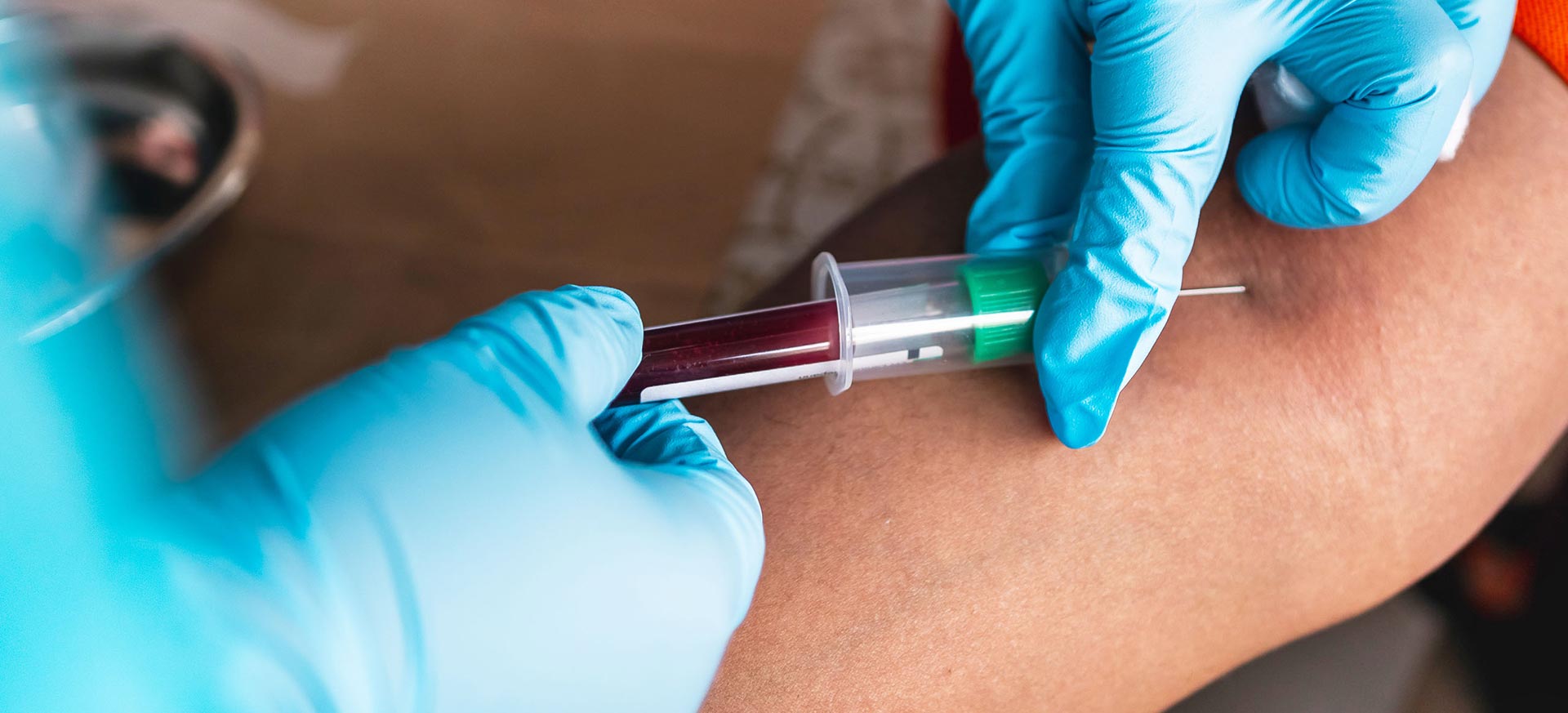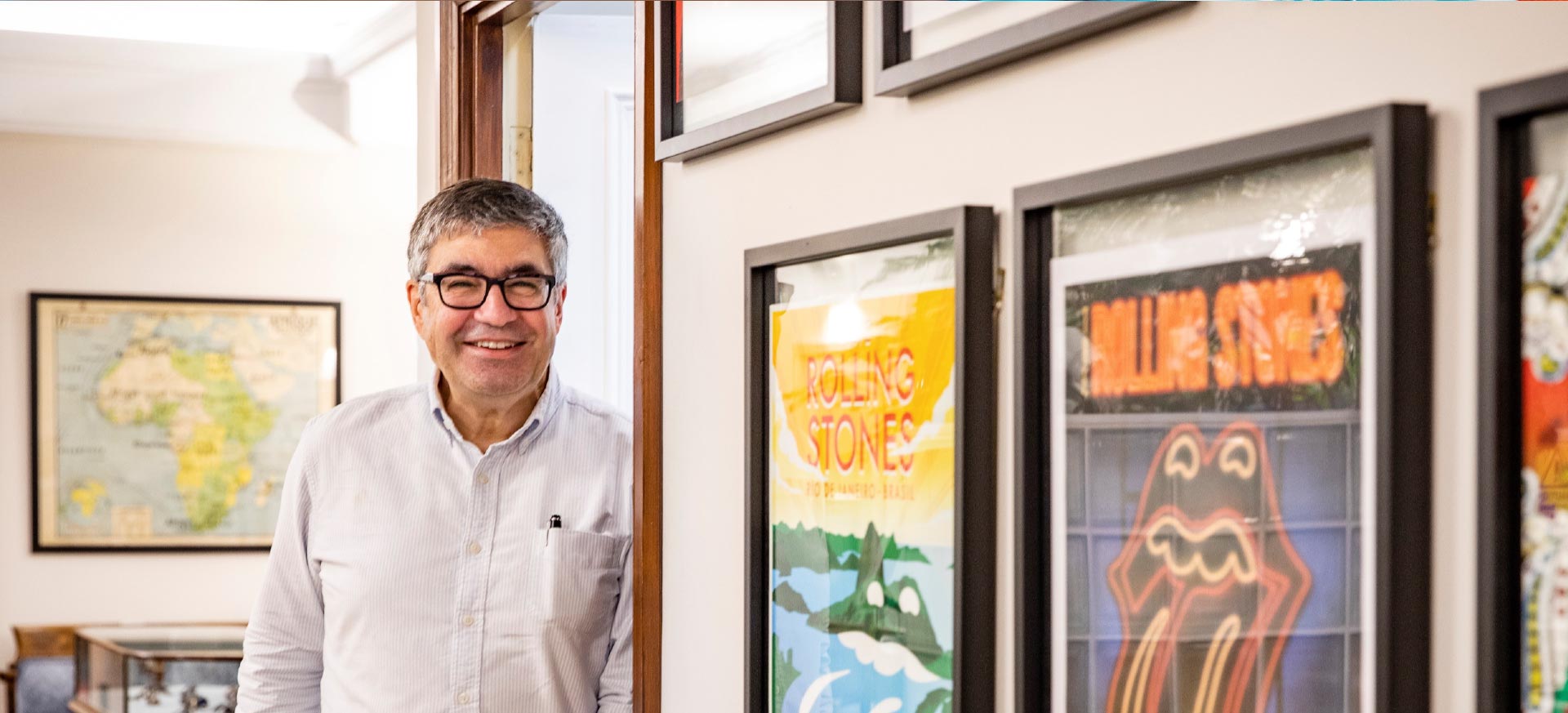Interview
A focus on five pillars
IAGEN excelled at handling the unique challenges of the global COVID-19 crisis and is poised for growth in 2021.
We gathered the heads of QIAGEN’s three business areas, Thomas Schweins (Life Sciences), Jean-Pascal Viola (Molecular Diagnostics) and Jonathan Sheldon (Digital Insights) for a chat about tackling the pandemic, developing tools in areas such as TB and Lyme disease, and hot topics such as diversity and sustainability. We kicked off the discussion with…
…the pivotal and challenging year 2020…
Thomas Schweins QIAGEN shifted gears to play a crucial role in tackling COVID, and we showed how swiftly we can react when faced with sudden market demands. In life sciences, sample technologies have been an essential foundation of fighting the pandemic. We offered our customers COVID products for quick Sample to Insight results, and placed instruments where we expect longer-term demand.
Jean-Pascal Viola That’s right. COVID has made molecular testing more relevant than ever. In 2020, several products played a significant role in testing for respiratory illness. Take QIAstat-Dx, which can perform multiple assays at once. So now we’re even seeing it in non-hospital settings like airports or on cruise ships. By the end of 2020, we achieved the goal of 2,000 cumulative placements.

Thomas Schweins
Senior Vice President, Head of Life Sciences
“In life sciences, sample technologies have been an essential foundation of fighting the pandemic.”
Thomas Schweins
…what’s ahead in 2021 and the focus on growth…
Thomas Schweins COVID-19 will stay with us for some time, but in 2021 we’ll develop both our COVID and non-COVID portfolios. On the COVID side, we have a forthcoming product which makes RNA sequencing much easier, much faster and much cheaper. This will make genomic surveillance more accessible to labs around the world.
Jonathan Sheldon Let me mention here the new bioinformatics cloud software that enables labs to upload virus sequences and track the emergence of variants. That whole project took literally six weeks from idea to deployment and is a great example of the synergies between Digital Insights and life sciences. As a COVID surveillance system, it will be a valuable tool in fighting the pandemic.
Thomas Schweins Yes, these tools complement each other very well.
In our life sciences non-COVID portfolio we have global responsibility for two out of five pillars of growth – sample technologies and our digital PCR platform, QIAcuity. This year we’ll launch a new sample tech system, the EZ2 Connect, replacing the highly successful EZ1 instrument, and will also address the needs of our academic customers. We’re also innovating in applications like liquid biopsy and microbial research, where we’ll be cross-working with JP’s teams.
The QIAcuity launch turned out to be one of the most successful in our history. We’ll build on that success in 2021, focusing on both the dPCR niche and the $3 billion qPCR market. We’re developing an entire ecosystem – instruments, enzymes, plates, tests, content and connectivity – to conduct research. The MDx and Life Sciences teams are joining forces to develop a diagnostic version of this portfolio, and the market here is at least as big as in life sciences.

Jonathan Sheldon
Senior Vice President, Head of QIAGEN Digital Insights
Jean-Pascal Viola On top of that, in Molecular Diagnostics we are focused on our growth pillars. One is our immune response portfolio, where QuantiFERON leads the market in latent TB testing. Upcoming launches include QIAreach-TB, a test based on QFT for use in low-resource regions, and the QuantiFERON Lyme disease test.
We’re also expanding our infectious disease business through QIAstat-Dx and NeuMoDx menus, which our customers quickly adopted for COVID-19 testing. Then we expect to add a meningitis panel in Europe and a gastrointestinal panel in the US for 2021. Post-COVID, the company’s well placed to address influenza-like illnesses and other respiratory syndromes – especially for at-risk groups, like the immunocompromised.
Jonathan Sheldon In QDI we have five key initiatives for bioinformatics growth. One, we’re building on our foundation of best-in-class applications. Two, growing our online and downloadable databases. Three, new ways to license and deliver content for data scientists. Four, Sample to Insight projects, including the RNA sequencing analysis that’s integrating with our GeneGlobe knowledge tool. Last of all, we’re building out our partnerships.

Jean-Pascal Viola
Senior Vice President, Head of Molecular Diagnostics and Corporate Development
“COVID has made molecular testing more relevant than ever.”
Jean-Pascal Viola
…how they’re changing QIAGEN culture with the new EMPOWER initiative…
Jean-Pascal Viola We want to equip our QIAGENers to make the right decisions, and this means knowing your customer better so you can get a deal done. Efficiency and answers – this is what we are doing with EMPOWER. Our new training tools, like Finance for Non-Financial Managers and Biology for Non-Biologists, are getting everybody on the same page, understanding the basics and driving our business.
Thomas Schweins EMPOWER means clear responsibilities and standardization within a framework that allows decisive action. That is important in fast-moving markets, where quick decisions are vital. That’s been our successful philosophy in life sciences now for some time.
Jean-Pascal Viola That’s a good point – we are more agile; we’re faster. Our goal is the end game, where people truly understand where they fit in the puzzle, and how they can make a difference. Then they’re more aware why it’s important to cut delays and be on time, on spec, or even ahead of schedule.
Jonathan Sheldon For me, it’s about leading by example – actually walking the walk. I guess it comes down to self-awareness. This may not mean instant, pivotal change, but working day to day to change the company’s culture.

Thomas Schweins
Senior Vice President, Head of Life Sciences
…how QIAGEN is addressing diversity…
Jonathan Sheldon It’s critical that the whole organization engages on this. For that to happen, people also have to feel safe in expressing their opinions and views – respectfully and thoughtfully.
Thomas Schweins Absolutely. Diversity makes us stronger, it makes us better, and it really is a foundation to any society or group of people. This isn’t just about gender diversity, but about bringing people together from completely different backgrounds: educational backgrounds, social backgrounds, from various countries and cultures. A diverse team can also produce a fusion of completely new ideas.
Jean-Pascal Viola Yes, when we talk about diversity, we’re talking about a lot of things – but especially unconscious bias. It’s not going to change overnight, but once you are more aware of unconscious bias, you can work on it.

Jonathan Sheldon
Senior Vice President, Head of QIAGEN Digital Insights
…and sustainability…
Thomas Schweins Sustainability is incredibly important and should be integrated across the board. We need to think about our CO2 footprint, our waste, and also how we take back certain parts of our value chain and reuse them. We can also learn from the coronavirus crisis. Online meetings like this one used to cost us a lot of CO2, because we thought we had to travel to make it work. We can all adjust – in all areas: reducing usage, using public transportation. We’ve increased the number of charging stations here in our parking lots for electric cars, and we’ve initiatied cutbacks in our plastic packaging.
Jean-Pascal Viola Indeed, we’re moving to boxes that don’t use styrofoam, and we have clear targets to reduce electricity consumption. Reducing our footprint is more efficient for our business, but it’s also our responsibility.

Jean-Pascal Viola
Senior Vice President, Head of Molecular Diagnostics and Corporate Development
QIAGEN’s whole organization is aligned to support our five Pillars of Growth.
 “We’ve appointed leaders within Finance for each of our five Growth Pillars who liaise directly with business owners. We give people the support they need so they can take direct ownership of business objectives in their areas of work.”
“We’ve appointed leaders within Finance for each of our five Growth Pillars who liaise directly with business owners. We give people the support they need so they can take direct ownership of business objectives in their areas of work.”
Roland Sackers
Chief Financial Officer
 “We are adapting our HR structures to support our changing strategic focus. Dedicated HR business partners are working directly with sales and service teams within our business areas, which will help streamline processes and bring decision making closer to customers.”
“We are adapting our HR structures to support our changing strategic focus. Dedicated HR business partners are working directly with sales and service teams within our business areas, which will help streamline processes and bring decision making closer to customers.”
Stephany Foster
Senior Vice President, Human Resources
 “In Global Operations, we are making significant changes and initiating projects designed to support our strategy even more effectively. These will provide greater flexibility to our supply systems to support the five Pillars of Growth beyond the pandemic.”
“In Global Operations, we are making significant changes and initiating projects designed to support our strategy even more effectively. These will provide greater flexibility to our supply systems to support the five Pillars of Growth beyond the pandemic.”
Barthold Piening
Senior Vice President, Head of Global Operations



